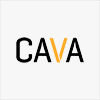
CAVA
CAVA Group ($CAVA): Despite CEO's First Purchase in Two Years, Gen Z Exodus and Growth Deceleration Persist
11/12/2025 21:34
Sentiment
C-Level
Summary
- CAVA Group shares plunged over 60% from $150 peak to $60s, with CEO executing first insider purchase in nearly two years
- Contrasting with executives' massive selling at 2024 highs, CEO's symbolic purchase at current lows suggests confidence near bottom
- Despite solid revenue growth (19.9% YoY), same-store sales deceleration and Gen Z spending decline create cracks in growth story
POSITIVE
- CEO's first insider purchase in nearly two years signals management confidence near bottom
- Q3 revenue up 19.9%, TTM surpassing $1.1 billion demonstrates solid growth momentum
- Strong financial liquidity with $387.68 million cash and 2.69 current ratio
- 14 of 23 brokerages maintain 'buy' ratings with $72 median price target suggesting 20% upside
- Key valuation metrics significantly normalized from last year's peak, offering attractive entry opportunity
NEGATIVE
- Consecutive downward revisions of same-store sales growth targets indicate persistent consumer demand weakness
- Negative free cash flow of -$15.79 million after debt payments creates cash flow pressure
- Declining restaurant spending among Gen Z target demographic raises customer base concerns
- High volatility with 2.49 beta and 13.14% short interest reflect continued market instability
- Inflation and tariff-driven cost increases pressure restaurant-level profitability
Expert
From a consumer discretionary sector perspective, CAVA faces industry-wide structural changes. Shifting Gen Z dining spending patterns and strengthened value-oriented consumption trends pose fundamental challenges to premium fast-casual brands' growth models, likely representing a paradigm shift beyond simple cyclical adjustments.
Previous Closing Price
$58.37
-1.59(2.65%)
Average Insider Trading Data Over the Past Year
$0
Purchase Average Price
$96.49
Sale Average Price
$0
Purchase Amount
$12.6M
Sale Amount
Transaction related to News
Trading Date | Filing Date | Insider | Title | Type | Avg Price | Trans Value |
|---|---|---|---|---|---|---|
12/31/2025 | 12/31/2025 | Sale | $ |
CAVA Group ($CAVA) presents investors with a stark question: Has this Mediterranean fast-casual chain truly found its bottom after plummeting over 60% from last year's $150 peak to current levels around $60, or is there more pain ahead? CAVA Group, founded in 2006 and headquartered in Washington, D.C., operates a Mediterranean fast-casual restaurant chain that combines healthful, bold-flavored food with convenience, targeting health-conscious consumers. With approximately 415 locations and a market cap of $5.65 billion, it's classified as a mid-cap stock. While positioned similarly to Chipotle or Sweetgreen, CAVA differentiates itself through Mediterranean cuisine. The most notable signal comes from CEO Brett Schulman's recent move. On November 12, the CEO purchased 150 shares at $48.98 - marking the first insider purchase in nearly two years. Though this represents just $7,347, the symbolic significance is substantial. After extensive selling by executives and directors throughout 2024-2025, the CEO's first purchase could signal confidence near the bottom. Analyzing insider trading patterns reveals a compelling narrative. When the stock traded between $120-150 in August 2024, CEO Schulman sold over 200,000 shares, cashing out more than $25 million. Major shareholder Artal International sold 14 million shares in August and November 2024 alone, recovering over $1.7 billion. Their timing was nearly perfect at the peak, suggesting management viewed those price levels as overvalued. But the current situation is entirely different. CAVA's fundamentals remain solid. Q3 2025 revenue of $289.8 million grew 19.9% year-over-year, with TTM revenue reaching $1.13 billion. Net income of $137.44 million maintains profitability. The issue is growth deceleration. Same-store sales growth disappointing expectations has significantly dampened investor enthusiasm. The restaurant industry faces broad challenges. Inflation and tariff-driven cost increases, particularly declining restaurant spending among younger consumers led by Gen Z, are hitting fast-casual chains hard. While value-oriented chains like McDonald's and Chili's perform relatively well, premium fast-casual brands like CAVA and Chipotle struggle with perceptions of being 'expensive.' CAVA's financial health isn't poor. Cash holdings of $387.68 million and a current ratio of 2.69 indicate no short-term liquidity issues. However, a 57.65% debt ratio and negative free cash flow after debt payments (-$15.79 million) warrant attention. Market sentiment toward CAVA remains mixed. Among 23 brokerages, 14 maintain 'buy' ratings with a median price target of $72, suggesting approximately 20% upside potential. However, a beta of 2.49 indicates high volatility relative to the market, while short interest of 13.14% reflects considerable bearish sentiment. Key metrics investors should monitor include: First, same-store sales growth recovery. CAVA consecutively lowered its 2025 annual growth target from 6-8% to 3-4%, making trend reversal timing crucial. Second, restaurant-level profitability improvement. Q3 restaurant-level profit margins of 24.6% fell short of expectations, making cost control and operational efficiency improvements urgent. Third, balancing new store openings with profitability. While aggressive expansion drives revenue growth short-term, it can pressure profitability. At current levels, CAVA may present an attractive investment opportunity. While the price-to-book ratio of 7.43x remains elevated, it's declined significantly from last year's 23.78x, and the price-to-sales ratio of 5.15x has normalized from 16.83x. If consumer spending recovers and CAVA improves operational efficiency, current prices could be attractive. However, risks are clear. If changes in consumer dining patterns prove structural, the growth story for premium fast-casual brands like CAVA could face fundamental threats. Additionally, high debt levels and negative free cash flow present burdens in a rising rate environment. Whether the CEO's symbolic purchase truly signals a bottom will require several quarters of results to determine. What's certain is that CAVA stands at a critical inflection point. Successfully overcoming growth deceleration and improving operational efficiency could make current prices an attractive entry opportunity, but failure to do so could lead to further downward pressure.